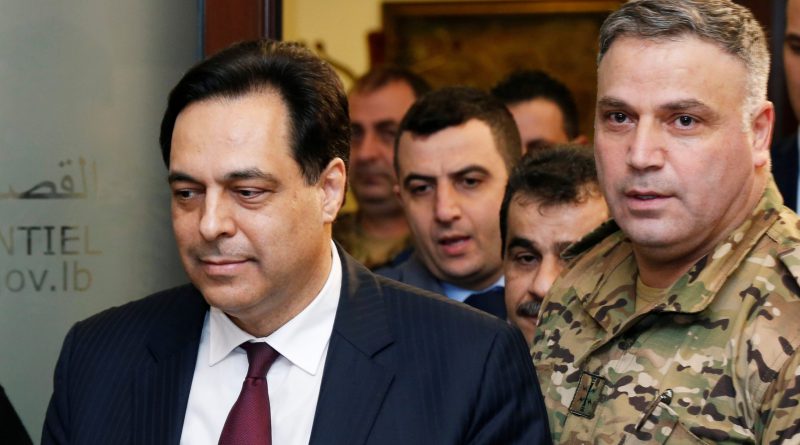Lebanon forms government with backing of Hezbollah and allies
Beirut (Reuters) – Lebanon formed a new government on Tuesday under Prime Minister Hassan Diab after the Shi’ite group Hezbollah and its allies agreed on a cabinet that must urgently address an economic crisis.
The heavily indebted state has been without effective government since Saad al-Hariri quit as premier in October, prompted by protests against politicians who have collectively led Lebanon into the worst crisis since the 1975-90 war.
New Finance Minister Ghazi Wazni said Lebanon needed foreign aid to save it from an unprecedented situation that had forced people to “beg for dollars” at the banks and fear for their deposits. He also described forthcoming foreign currency sovereign debt maturities as “a fireball”.
The Iranian-backed Hezbollah and allies including President Michel Aoun nominated Diab as premier last month after efforts failed to strike a deal with Hariri, Lebanon’s main Sunni leader and a traditional ally of the West and Gulf Arab states.
Weeks of wrangling over portfolios among Hezbollah’s allies held up an agreement until Tuesday, when the heavily armed group delivered an ultimatum to its allies to make a deal or suffer the consequences, sources familiar with the talks said.
The cabinet is made up of 20 specialist ministers backed by parties. Wazni, an economist who had served as an adviser to parliament’s finance and budget committee, was nominated with the backing of Parliament Speaker Nabih Berri. Nassif Hitti, a former ambassador to the Arab League, was named foreign minister with the backing of Aoun’s Free Patriotic Movement.
Diab described his government as a technocratic “rescue team” that would work to achieve protesters’ goals. His first trip abroad would be to the Arab region, particularly the Gulf.
But analysts said Hezbollah’s role meant Diab might have trouble winning foreign support.
Protesters took to the streets of Beirut as the government was announced. Police fired water canons at stone-throwing demonstrators near parliament who tried to dismantle newly erected barricades. “This government doesn’t reflect us,” said protester Rabih Al-Zein.
The absence of a government had left Lebanon rudderless as ordinary people suffered in the crisis.
A liquidity crunch has led banks to restrict access to cash and the Lebanese pound to slump. Jobs have been lost and inflation has soared. Over the last week, hundreds have been injured in clashes between the security forces and demonstrators.


